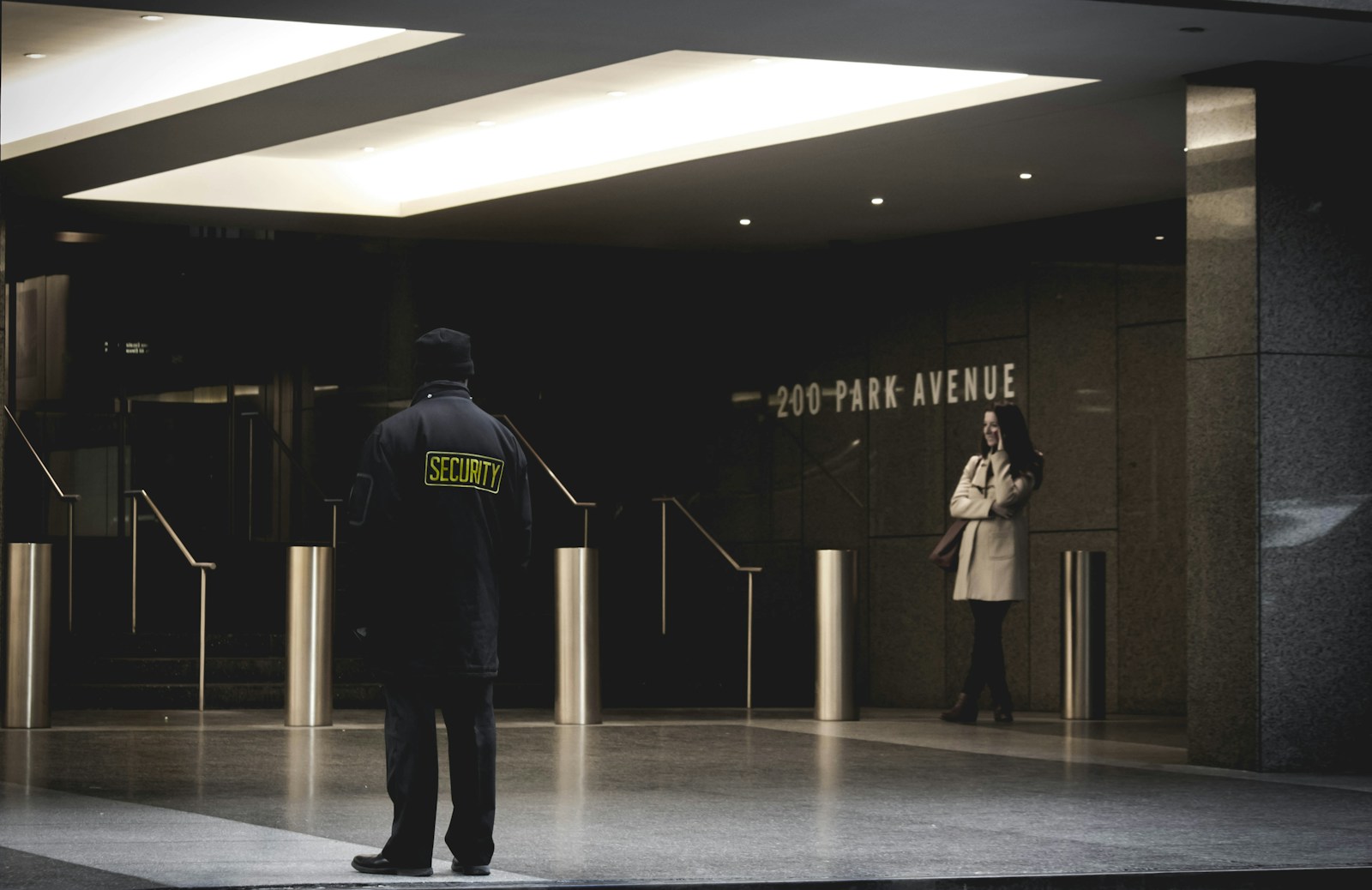
Security Manager Vacancies
-

MAN Automotive Customer Liaison Officer Vacancy
MAN Automotive (South Africa) (Pty) Ltd.Modderfontein, Gauteng -

Fidelity Services Group Tender Administrator Vacancy
Fidelity Services GroupRoodepoort, Johannesburg -

Dis-Chem Pharmacies Limited Frontshop Assistant Vacancy
Dis-Chem Pharmacies LimitedJohannesburg, Gauteng -

Clicks Group Driver Vacancy
Clicks GroupJohannesburg, Gauteng -

South African National Space Agency (SANSA) Front Office Liaison Vacancy
South African National Space Agency (SANSA)Pretoria, Gauteng -

Fidelity Services Group CIT Driver Vacancy
Fidelity Services GroupDurban, KwaZulu-Natal -

SANSA Volunteer Positions for SANAE IV Antarctic Relief Voyage
The South African National Space AgencyHermanus, Western Cape -

HR Internship at Prestige Cosmetics Group
Prestige Cosmetics Group(PCG)Johannesburg, Gauteng -

Fidelity Services Group Box Room Controller Vacancy
Fidelity Services GroupPort Elizabeth, Eastern Cape -

Rand Mutual Assurance Receptionist Vacancy
Rand Mutual AssuranceParktown, Gauteng -

Road Accident Fund Officer: Undertakings x4 Posts
Road Accident Fund (RAF)Pretoria, Gauteng -

RCL FOODS Receptionist Vacancy
RCL FOODSRustenburg, North West -

Starke Ayres Despatch Controller Vacancy
Starke Ayres (Pty) Ltd.Kempton Park, Gauteng -

Eskom YES Youth Employment Service Learnerships
EskomSunninghill, Gauteng
Job Description and Duties
The role of a security manager encompasses a broad range of responsibilities aimed at safeguarding organizational assets and personnel. Based on job listings and professional descriptions, the following duties are typical:
- Policy Development and Implementation: Security managers develop and implement security policies, protocols, and procedures to ensure comprehensive protection. This includes creating guidelines for access control, surveillance, and emergency responses, ensuring alignment with local regulations like those set by the Private Security Industry Regulatory Authority (PSIRA).
- Personnel Management: They recruit, train, and supervise security officers and guards, ensuring the team is equipped to handle security operations effectively. This involves conducting training sessions on emergency procedures and maintaining staff compliance with ethical standards.
- Risk Assessment and Audits: Conducting regular risk assessments and security audits to identify vulnerabilities is crucial. This involves analyzing data to propose improvements, such as implementing new technologies like advanced CCTV systems, and ensuring compliance with safety standards.
- Operational Coordination: Security managers coordinate security operations for specific events, manage budgets, and monitor expenses to ensure cost-effective security measures. They also collaborate with law enforcement and emergency services during incidents, ensuring a coordinated response.
- Incident Management and Reporting: Investigating security breaches, resolving issues, and creating detailed reports for management are key duties. These reports help in assessing security status and proposing enhancements, such as upgrading security systems based on incident trends.
In the South African context, security managers must navigate unique challenges, such as high crime rates and compliance with PSIRA regulations, which adds a layer of complexity to their role. For instance, in the hospitality sector, as noted by the International Hotel School, duties include ensuring guest safety, managing surveillance systems, and training staff for emergencies, reflecting the sector-specific needs.
Requirements and Qualifications
Becoming a security manager in South Africa requires meeting specific educational, experiential, and regulatory standards. The following details outline the typical requirements:
- Educational Background: A high school diploma is often the minimum requirement, with further education in security management, criminal justice, or related fields being highly beneficial. For example, UNISA offers a Diploma in Security Management, which can enhance career prospects. Advanced degrees may be preferred for senior roles.
- Experience: Job listings consistently require 3-5 years of experience in security management, with some roles demanding experience in specific sectors like hospitality or retail. This experience ensures candidates can handle the managerial and operational aspects of the role effectively.
- PSIRA Registration and Certifications: Registration with PSIRA as a Grade A security officer is mandatory. Grade A is the highest tier, designed for individuals managing entire security operations, overseeing large teams, and ensuring regulatory compliance. To achieve this, candidates must complete the Grade A training course, which covers advanced topics like security protocol development and team supervision. General PSIRA registration requires being a South African citizen, having no criminal record, and completing training at an accredited center.
- Skills and Competencies: Security managers need strong leadership and organizational skills, excellent communication for coordinating with teams and stakeholders, and proficiency in security technologies such as CCTV and access control systems. They must also demonstrate the ability to respond effectively to emergencies and maintain a proactive approach to security threats.
- Additional Requirements: A valid driver’s license is often required, with some positions necessitating own transportation. A clean criminal record is essential, as PSIRA conducts background checks during registration. Some roles may also require familiarity with specific industry standards, such as ISO 14001 and ISO 45001 in manufacturing.
These qualifications ensure security managers can meet the demands of their role, particularly in complying with South African legal and industry standards.
Salary Ranges
Salaries for security managers in South Africa vary significantly based on factors such as experience, location, industry, and organizational size. Research from multiple sources provides the following insights:
- Average Salary Range: PayScale reports an average annual salary of R248,949 for 2025, with a base salary range from R20,000 to R662,000 per year. ERI Economic Research Institute suggests a higher average of R849,498 annually, indicating potential variation by role level or industry. Job listings on SimplyHired show monthly salaries ranging from R17,000 to R25,000 (R204,000 to R300,000 annually), suggesting entry to mid-level positions.
- Factors Influencing Salary: Experience plays a significant role, with entry-level positions starting lower and senior managers earning up to R662,000 or more. Location impacts salary, with higher pay in major cities like Johannesburg and Cape Town due to cost of living and demand. Industry also affects earnings, with sectors like mining and banking offering higher salaries compared to retail or hospitality. For instance, security managers in the financial sector may earn more due to the need for robust security against fraud and robberies.
- Bonus and Additional Compensation: PayScale notes bonus ranges from R5,000 to R79,000 and profit sharing up to R10,000, contributing to the total pay range of R25,000 to R648,000 annually. These figures highlight the potential for additional earnings based on performance and organizational policies.
Given the variability, it’s advisable for candidates to research specific roles and negotiate based on their qualifications and the employer’s budget.
Vacancies and Job Market
The job market for security managers in South Africa is robust, with numerous vacancies available across various platforms. As of July 12, 2025, the following insights reflect the current landscape:
- Number of Vacancies: Job portals like CareerJunction list over 71 security manager jobs, Pnet has 1,198, and LinkedIn shows 241, indicating a strong demand. Platforms like Indeed and Jobsora report hundreds to thousands of listings, with Fidelity Services Group and Dimension Data being major employers.
- Popular Locations: Major cities such as Johannesburg, Cape Town, Durban, and Pretoria are hotspots for security manager roles, driven by economic activity and population density. For example, Johannesburg and Cape Town are frequently mentioned in job listings due to their corporate and hospitality sectors.
- Industries and Sectors: Opportunities span hospitality (hotels, resorts), retail (shopping malls), corporate (large organizations), mining, banking, and events. Each sector has specific needs, such as crowd control for events or asset protection in mining, reflecting the diverse applications of security management.
- Job Types and Flexibility: Most positions are permanent, with some part-time roles available (e.g., 18 part-time jobs on Pnet). Remote work options are limited but growing, with 13 work-from-home security management jobs listed on CareerJunction, indicating flexibility for certain roles.
The demand for security managers is expected to remain strong, given South Africa’s ongoing security challenges and the growth of industries requiring professional security services.
Industries Employing Security Managers
Security managers are employed across a wide array of industries, each with unique security needs:
- Hospitality: Hotels, resorts, and casinos require security managers to ensure guest and staff safety, manage access control, and prevent theft. For example, the International Hotel School highlights roles involving surveillance systems and emergency training, with salaries potentially up to R30,000 per month in high-end properties.
- Retail: Shopping malls and retail chains need security managers for loss prevention, crowd management, and ensuring a safe shopping environment. Listings often require experience in retail security, with duties including patrolling and incident reporting.
- Corporate: Large corporations and office buildings employ security managers to protect employees, assets, and sensitive information, often requiring integration with IT security for comprehensive protection.
- Mining: The mining industry, significant in South Africa, requires security managers to protect valuable resources, manage site access, and ensure worker safety, often in remote and high-risk areas.
- Banking and Finance: Financial institutions need robust security against robberies, fraud, and cyber threats, with security managers overseeing both physical and, increasingly, digital security measures.
- Events and Entertainment: Concerts, sports events, and festivals require security managers for crowd control, access management, and emergency response, with roles varying by event size and location.
Each industry presents specific challenges, such as high-value asset protection in mining or customer safety in retail, requiring tailored security strategies.
Compliance with PSIRA Regulations
The private security industry in South Africa is regulated by PSIRA, established under the Private Security Industry Regulation Act 56 of 2001. Security managers must ensure compliance with PSIRA standards, which include:
- Personnel Registration: All security personnel, including managers, must be registered with PSIRA and hold the appropriate grade, with Grade A being standard for managers. This involves completing accredited training and passing assessments.
- Code of Conduct and Ethics: Adhering to PSIRA’s code of conduct, ensuring ethical practices and respecting individuals’ rights while performing duties.
- Record Keeping and Reporting: Maintaining accurate records of security operations and incidents, submitting reports as required, and ensuring transparency in operations.
- Regulatory Compliance: Implementing security measures that meet or exceed PSIRA standards, such as access control and surveillance protocols, to avoid penalties like fines or operational suspension.
Non-compliance can lead to legal and financial repercussions, underscoring the importance of staying updated with PSIRA guidelines.
Career Progression
A career in security management often follows a structured path, starting at entry-level positions and progressing through grades:
- Entry-Level (Grade E): Typically involves patrolling and basic security duties, requiring minimal training and serving as the starting point.
- Access Control (Grade D): Focuses on gate control and access management, with slightly more responsibility than Grade E, requiring additional training.
- Senior Security Officer (Grade C): Involves more complex duties, such as supervising lower-grade officers, with increased training requirements.
- Supervisor (Grade B): Manages teams, oversees operations, and ensures compliance, requiring supervisory training and experience.
- Security Manager (Grade A): The highest tier, involving managing entire security operations, overseeing large teams, and ensuring regulatory compliance. Achieving Grade A requires advanced training, typically 3-5 years of experience, and PSIRA registration.
Career advancement involves completing PSIRA-accredited training courses for each grade, gaining experience, and potentially pursuing further education, such as diplomas from UNISA, to enhance prospects.
Challenges and Opportunities
Security managers in South Africa face several challenges, including:
- High Crime Rates: The prevalence of crime necessitates robust security measures, increasing the pressure on managers to prevent incidents.
- Evolving Threats: Sophisticated criminal activities, such as organized crime and cyber threats, require continuous adaptation and training.
- Regulatory Compliance: Navigating PSIRA regulations and ensuring compliance can be complex, especially for multi-site operations.
However, these challenges present opportunities:
- Professional Growth: The demand for skilled security managers offers chances for career advancement, with roles in higher management or specialization in areas like cyber security.
- Technological Advancements: Staying updated with security technologies, such as AI-driven surveillance, can enhance effectiveness and open new career paths.
- Industry Expansion: Growing industries like mining and events increase the need for security professionals, providing diverse job opportunities.
This dynamic landscape ensures security managers can contribute significantly to safety while advancing their careers.
Leave a Reply